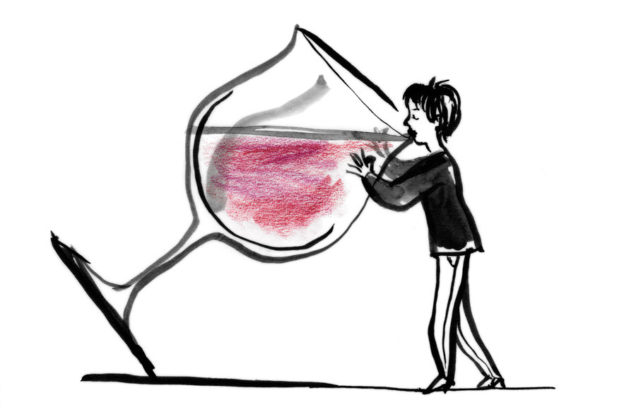Alcohol and Its Effect on the Brain

When one thinks of parties, bars, or clubs, alcohol inevitably comes to mind. We drink before a party to help ourselves reduce anxiety and increase euphoria before dancing or mingling with other people. Because of these effects, alcohol has become the one of the most widely used recreational drugs in the world. So what exactly makes alcohol so appealing and why do we keep chasing after it despite knowing its negative effects in large doses?
With the first sip of the drink, we begin to see changes in two major neurotransmitters: GABA and glutamate. The increase in GABA keeps the brain calm while the glutamate keeps the brain active. The specific areas that are affected in the brain are the frontal lobe, which controls attention and planning, and the cerebellum, which controls movement. This is why after a few drinks, you may become uncoordinated and inhibited in your ability to think straight. After even more drinks, the levels of the neurotransmitters start to affect regions of the hippocampus, which can cause a loss of memory or black outs with increasing doses. After all the drinking has subsided, we leave our brain in a state to retune the neurotransmitter levels by itself, which could cause lasting damage if a heavy amount of alcohol was consumed. While an occasional drink has been shown to be healthy for the body, too much drinking leads to damage in the brain and a tendency towards alcoholism.
So how exactly do people become alcoholics? A study at Texas A&M has shown that alcohol seeking behavior may be a result of increasing connections between neurons in your brain. Through long-term potentiation, the pattern of activity described above is maintained. Wang et al. specifically tested this phenomenon by mimicking the effect of alcohol with optogenetics, which uses proteins sensitive to light to turn on and off certain regions in the brain. They used optogentics to recreate the memory and learning from alcohol, and both methods showed an increase in the strength of connections. With these findings, modulation of these regions in the brain may become an effective treatment for alcohol addictions. However, as exciting as these findings are, there is still a lot of research to be done before these methods can be used as treatments for addictions. In the meantime, drink cautiously and have fun!
Writer: Albert Wang
Editor: Sophia Hon
Sources:
http://www.imperial.ac.uk/news/169859/why-alcohol-makes-your-brain-feel/
https://www.nature.com/articles/s41593-018-0081-9